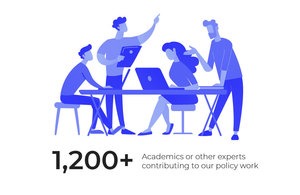Court users may use integrated Court Case Management System for District Court Civil Action
The Judiciary today (July 8) announced that court users may use the integrated Court Case Management System (iCMS) for electronic filing and payments related to civil action proceedings in the District Court with effect from July 29.
The iCMS is an integral part of the Judiciary’s Information Technology Strategy Plan. It aims to facilitate the handling of court-related documents and payments through an electronic mode.
The Judiciary has been developing in phases the iCMS across various levels of courts. The iCMS was first implemented for personal injuries action and tax claim proceedings in the District Court in May this year.
The major electronic services under the iCMS include sending case-specific court documents to the courts and receiving such documents from the courts, inspecting or searching filed documents and other case-related information held by the courts, searching cause books, and making payments for court services.
Eligible users need to register for a user account for full use of the iCMS. They include parties of an ongoing or new e-proceeding and their legal representatives (if any), the Hong Kong Bar Association, the Law Society of Hong Kong, law firms, government departments, law enforcement agencies and statutory bodies. Registration is free of charge.
Unregistered members of the public may also use certain types of iCMS services, mainly related to searching of electronic documents open to public inspection.
To encourage migration to electronic filing and payment through the iCMS, a 20 per cent concession is offered to iCMS users for five years on fee items of the District Court which are primarily or directly related to electronic handling of court documents.
Generally speaking, the iCMS operates round the clock except during system maintenance. The maintenance schedules of the iCMS, as specified by the Judiciary from time to time, are published on a dedicated webpage on the use of electronic technology with the courts (www.judiciary.hk/en/e_courts/index.html) on the website of the Judiciary.
Any e-filing and e-payment received under the iCMS after the physical registry and the accounts office are normally closed to the public (i.e. 5.30pm on a working day) will be deemed to be received upon the starting time of the normal opening hours of the registry and the accounts office on the following working day.
For enquiries, please call the general enquiry hotline at 2477 1002 or the technical helpline at 2886 6474, email enquiry@judiciary.hk or visit the Help Centre at 5/F, Wanchai Tower, 12 Harbour Road, Wan Chai.
